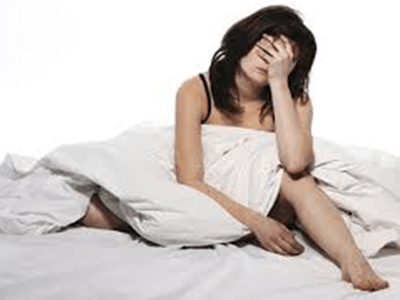Sometimes we want sex, sometimes we don’t. That’s normal. Every woman has her own level of what is considered “normal” based on their own experiences and biological drive. But when a woman has a low libido or low sexual desire and is bothered by this lack of interest in sex, she may have a condition called hypoactive sexual desire disorder or sexual desire disorder
Symptoms
Symptoms of low sex desire in women include:
- Having no interest in any type of sexual activity, including masturbation
- Never or only seldom having sexual fantasies or thoughts
- Being concerned by your lack of sexual activity or fantasies
Causes
Desire for sex is based on a complex interaction of many things affecting intimacy, including physical and emotional well-being, experiences, beliefs, lifestyle, and your current relationship. If you're experiencing a problem in any of these areas, it can affect your desire for sex.
Physical causes
A wide range of illnesses, physical changes and medications can cause a low sex drive, including:
- Sexual problems. If there is pain during sex or can't orgasm, it can reduce the desire for sex.
- Medical diseases. Many nonsexual diseases can affect sex desire, including arthritis, cancer, diabetes, high blood pressure, coronary artery disease and neurological diseases.
- Medications. Certain prescription drugs, especially antidepressants
- Lifestyle habits. Too much alcohol can affect the sex desire. smoking decreases blood flow, which may dull arousal.
- Surgery. Any surgery related to your breasts or genital tract can affect the body image, sexual function and desire for sex.
- Fatigue. Exhaustion from caring for young children or aging parents can contribute to low sex drive. Fatigue from illness or surgery also can play a role in a low sex drive.
Hormone changes
Changes in your hormone levels may alter your desire for sex. This can occur during:
- Menopause. Estrogen levels drop during the transition to menopause. This can make less interested in sex and cause dry vaginal tissues, resulting in painful or uncomfortable sex. Although many women still have satisfying sex during menopause and beyond, some experience a lagging libido during this hormonal change.
- Pregnancy and breast-feeding. Hormone changes during pregnancy, just after having a baby and during breast-feeding can put a damper on sex drive. Fatigue, changes in body image, and the pressures of pregnancy or caring for a new baby also can contribute to changes in your sexual desire.
Psychological causes
state of mind can affect sexual desire. There are many psychological causes of low sex drive, including:
- Mental health problems, such as anxiety or depression
- Stress, such as financial stress or work stress
- Poor body images
- Low self-esteem
- History of physical or sexual abuse
- Previous negative sexual experiences
Relationship issues
For many women, emotional closeness is an essential prelude to sexual intimacy. So problems in your relationship can be a major factor in low sex desire. Decreased interest in sex is often a result of ongoing issues, such as:
- Lack of connection with partner
- Unresolved conflicts or fights
- Poor communication of sexual needs and preferences
- Trust issues
DYSPAREUNIA / painful coition
Dyspareunia can occur for reasons that range from structural problems to psychological concerns. Many women have painful intercourse at some point in their lives.
It is defined as persistent or recurrent genital pain that occurs just before, during or after intercourse. Our Treatment focus on the cause, and can help eliminate or lessen this common problem.

